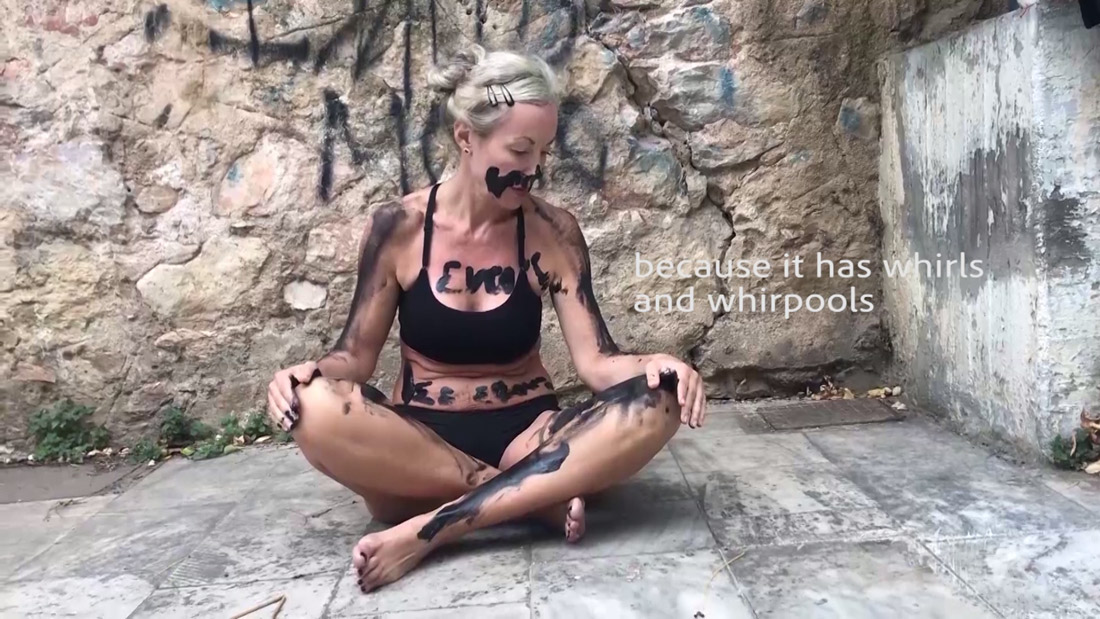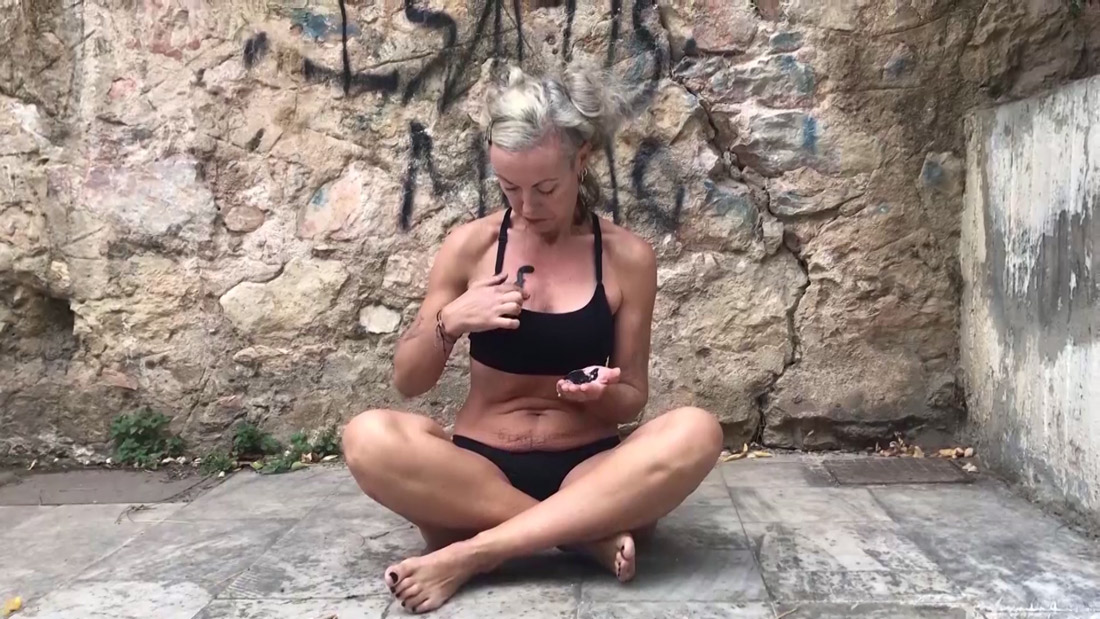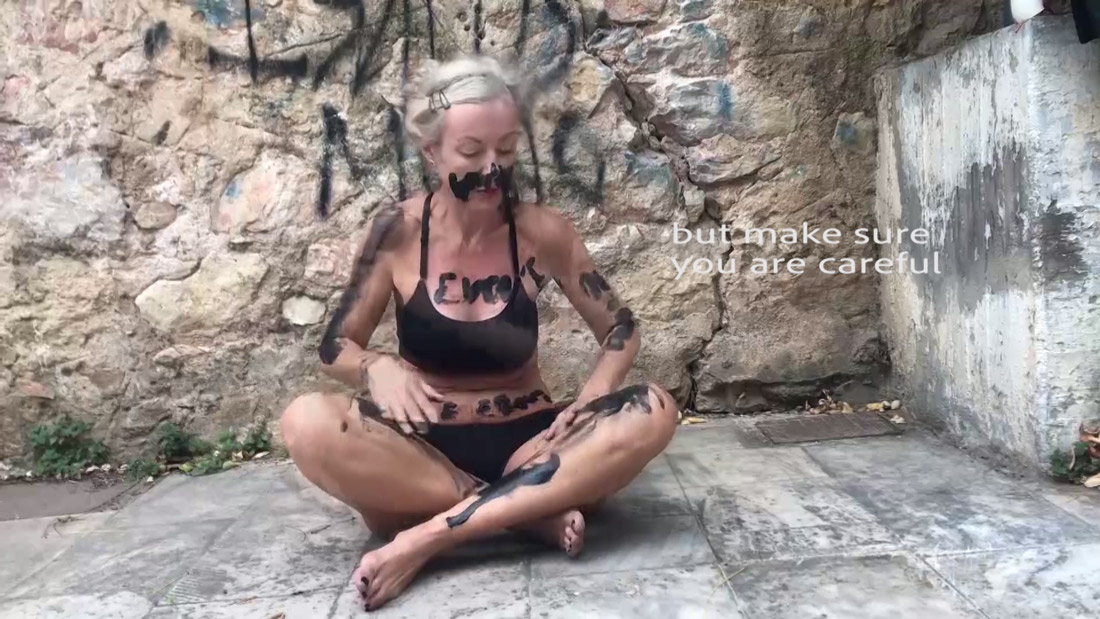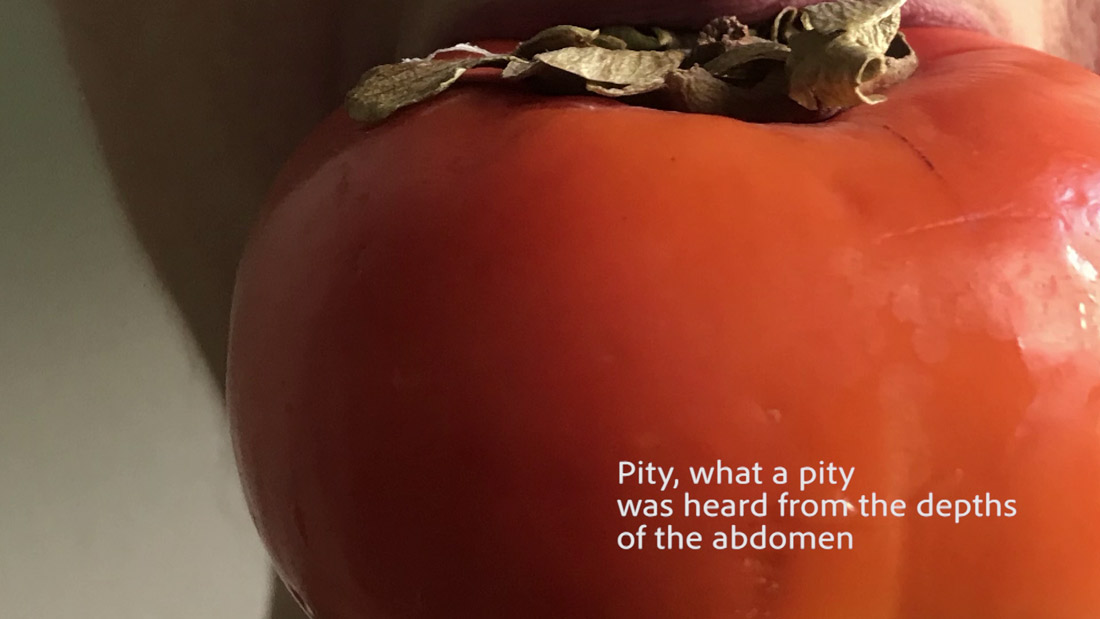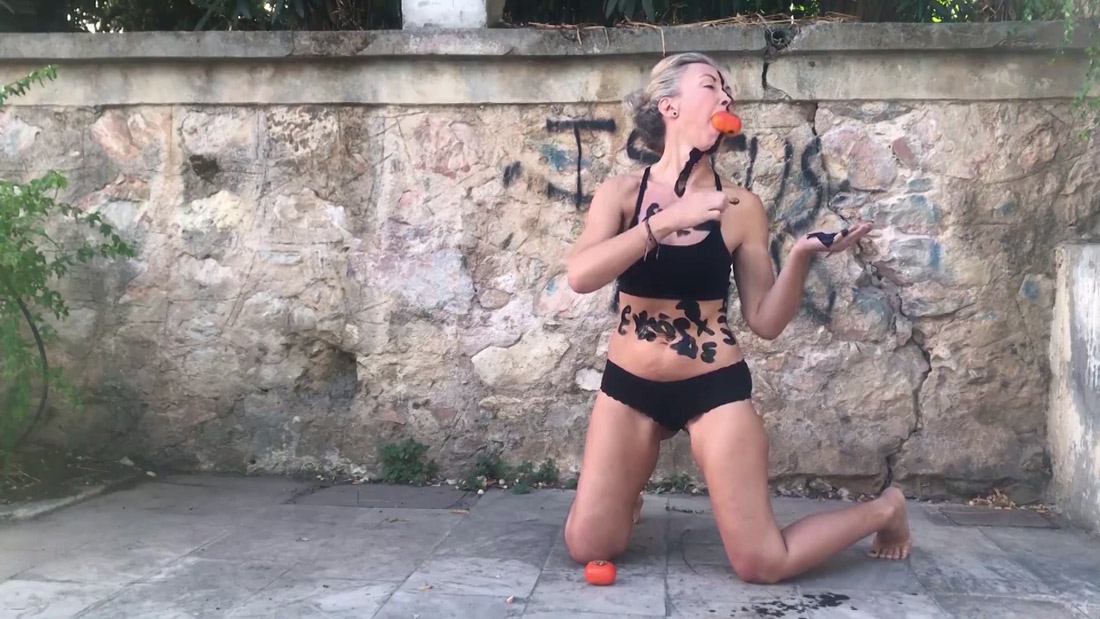Inner Topography
Video performance 2020
Eugenia Grammenou's video performance entitled Inner Topography, is based on the idea of internal and external "inclusions" and how they "write" in memory as wounds, as ruins of a past or a scary now. These "marks", the hidden "spots", return and are inscribed on the body of the artist, with phrases, words, abstract gestures. Suffering body, stigmatized body, body as a field of memory. Fragments of memories / fragments of pain in any form. The performer uses her body as a narrative field with body notes being recorded in unexpected places. Memory is fragmentary in nature, imprinted with words, fragments of words and finally abstract color gestures on the "paper / body".
The performance was created and evolved in the middle of the quarantine with actions and shots taken in various parts of Athens, marking a map of injuries in a ghost town. A pain mapping but mainly the body as a pain map. Memories as words, as indelible traces, are recorded on the skin. Every event "writes" on us, "writes" inside us. In the inner "homeland". Inner topography. The exploration of an internal topography with gestures, writings, signs. Especially in the era of covid 19, which as a historical point functions as a collective trauma with the possibility of becoming in the future as a collective traumatic memory.
The narrative / poem implicitly implies a relationship of domination and enforcement. Violence implicitly present, authoritarian inclusion explicitly stated. Fresh wound flowing. The audio work behind the narration was created with the vowels from Sylvia Plath poem "Mrs. Lazaros" translated by Katerina and Eleni Iliopoulou, published by Melani.
Eugenia Grammenou's video performance entitled Inner Topography, is based on the idea of internal and external "inclusions" and how they "write" in memory as wounds, as ruins of a past or a scary now. These "marks", the hidden "spots", return and are inscribed on the body of the artist, with phrases, words, abstract gestures. Suffering body, stigmatized body, body as a field of memory. Fragments of memories / fragments of pain in any form. The performer uses her body as a narrative field with body notes being recorded in unexpected places. Memory is fragmentary in nature, imprinted with words, fragments of words and finally abstract color gestures on the "paper / body".
The performance was created and evolved in the middle of the quarantine with actions and shots taken in various parts of Athens, marking a map of injuries in a ghost town. A pain mapping but mainly the body as a pain map. Memories as words, as indelible traces, are recorded on the skin. Every event "writes" on us, "writes" inside us. In the inner "homeland". Inner topography. The exploration of an internal topography with gestures, writings, signs. Especially in the era of covid 19, which as a historical point functions as a collective trauma with the possibility of becoming in the future as a collective traumatic memory.
The narrative / poem implicitly implies a relationship of domination and enforcement. Violence implicitly present, authoritarian inclusion explicitly stated. Fresh wound flowing. The audio work behind the narration was created with the vowels from Sylvia Plath poem "Mrs. Lazaros" translated by Katerina and Eleni Iliopoulou, published by Melani.
Link Video
https://www.youtube.com/watch?v=gqvFqr0NsSE&ab_channel=EugeniaGrammenou
Inner Topography
Eugenia Grammenou 2020
Video performance
4:29΄΄
Art Director Aris Rupinas
Translation Elsa Iatrou
Editing translation Efi Antoniοu
Poem/narration Eugenia Grammenou
Vocals Eno Athanasiadou
Vocals based on the vowels of poem “Lady Lazarus” by Sylvia Plath
https://www.youtube.com/watch?v=gqvFqr0NsSE&ab_channel=EugeniaGrammenou
Inner Topography
Eugenia Grammenou 2020
Video performance
4:29΄΄
Art Director Aris Rupinas
Camera
Despina Chrisidou
Eno Athanasiadou
Dimitris Panagou
Eugenia Grammenou
Despina Chrisidou
Eno Athanasiadou
Dimitris Panagou
Eugenia Grammenou
Translation Elsa Iatrou
Editing translation Efi Antoniοu
Poem/narration Eugenia Grammenou
Vocals Eno Athanasiadou
Vocals based on the vowels of poem “Lady Lazarus” by Sylvia Plath
Special thanks to
Lia Yoka
Gianni Didaskalou
Katerina Iliopoulou
Eleni Iliopoulou
Melani Publications
Lia Yoka
Gianni Didaskalou
Katerina Iliopoulou
Eleni Iliopoulou
Melani Publications

